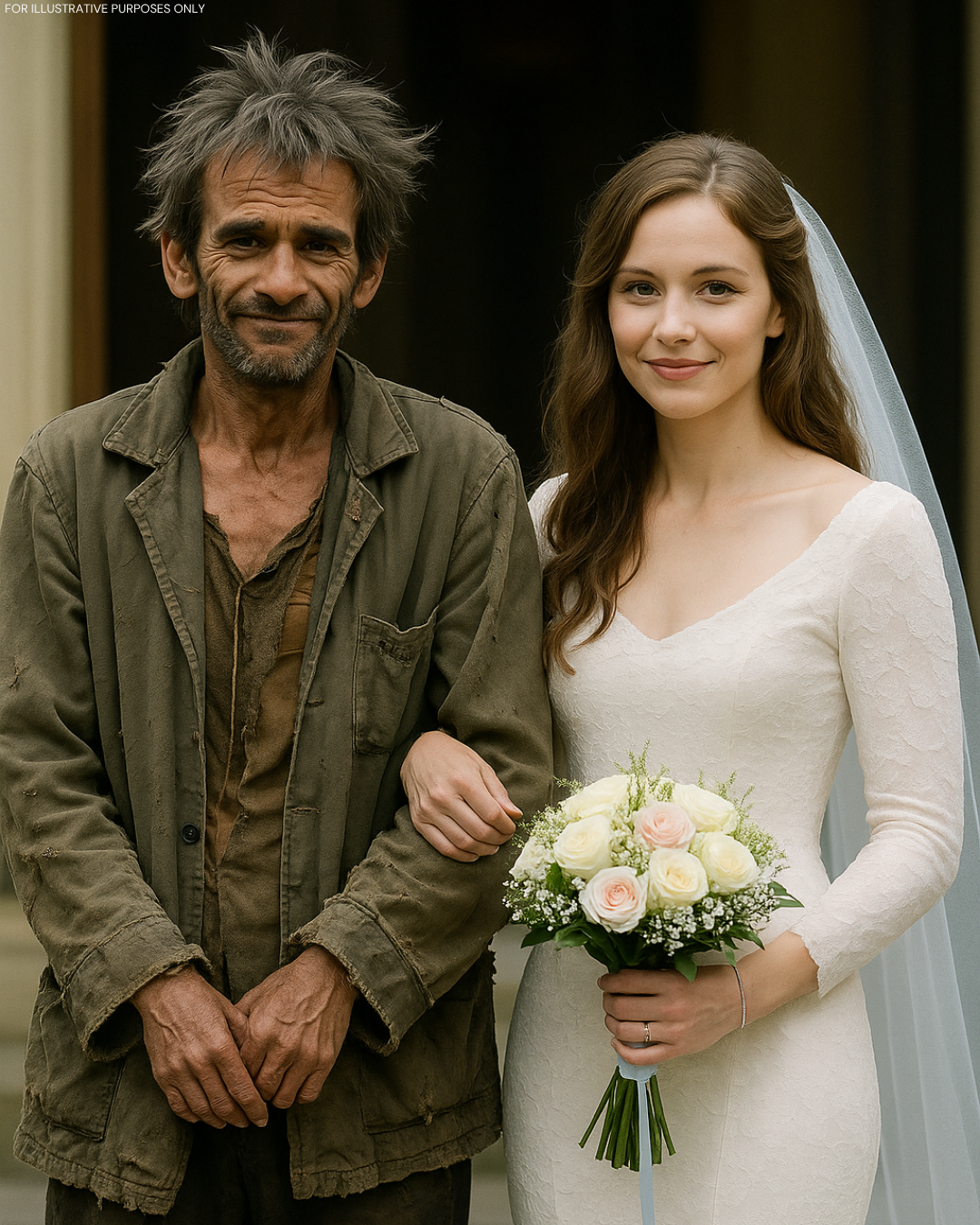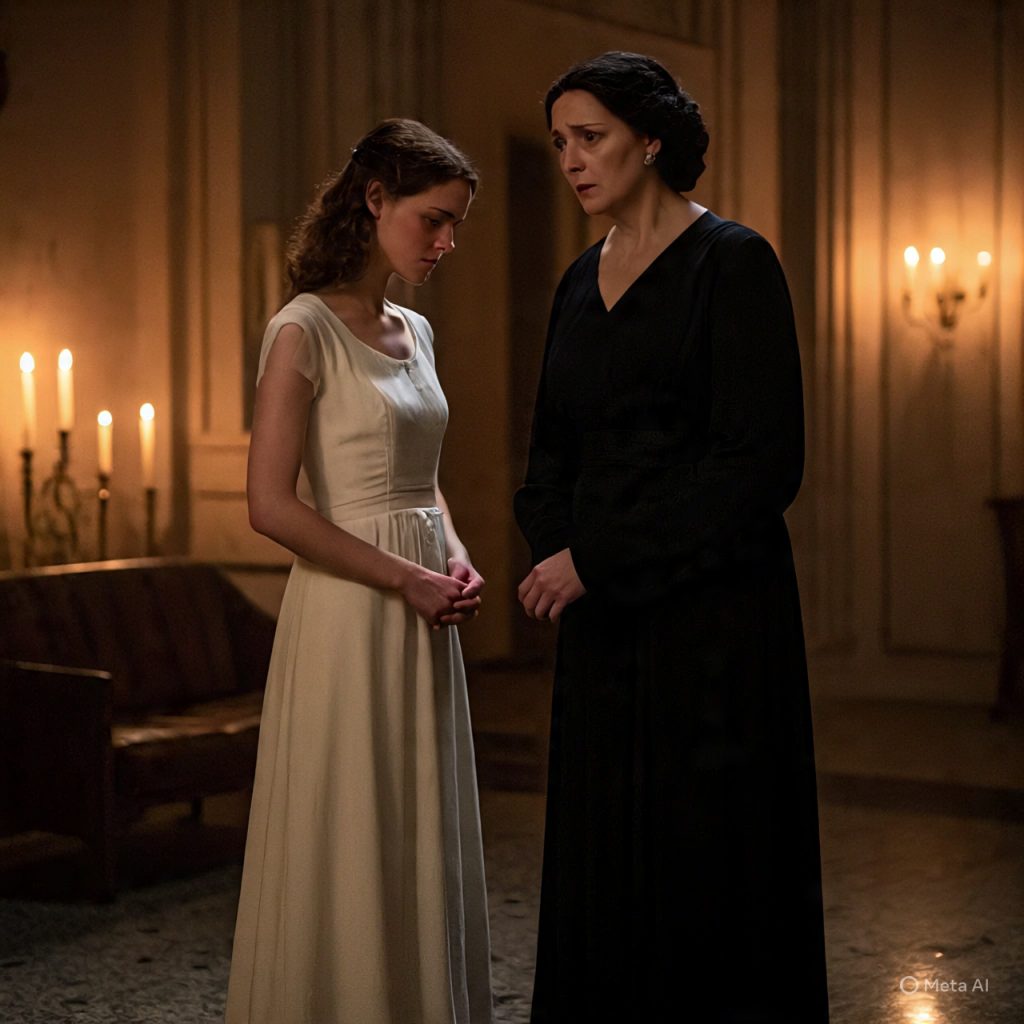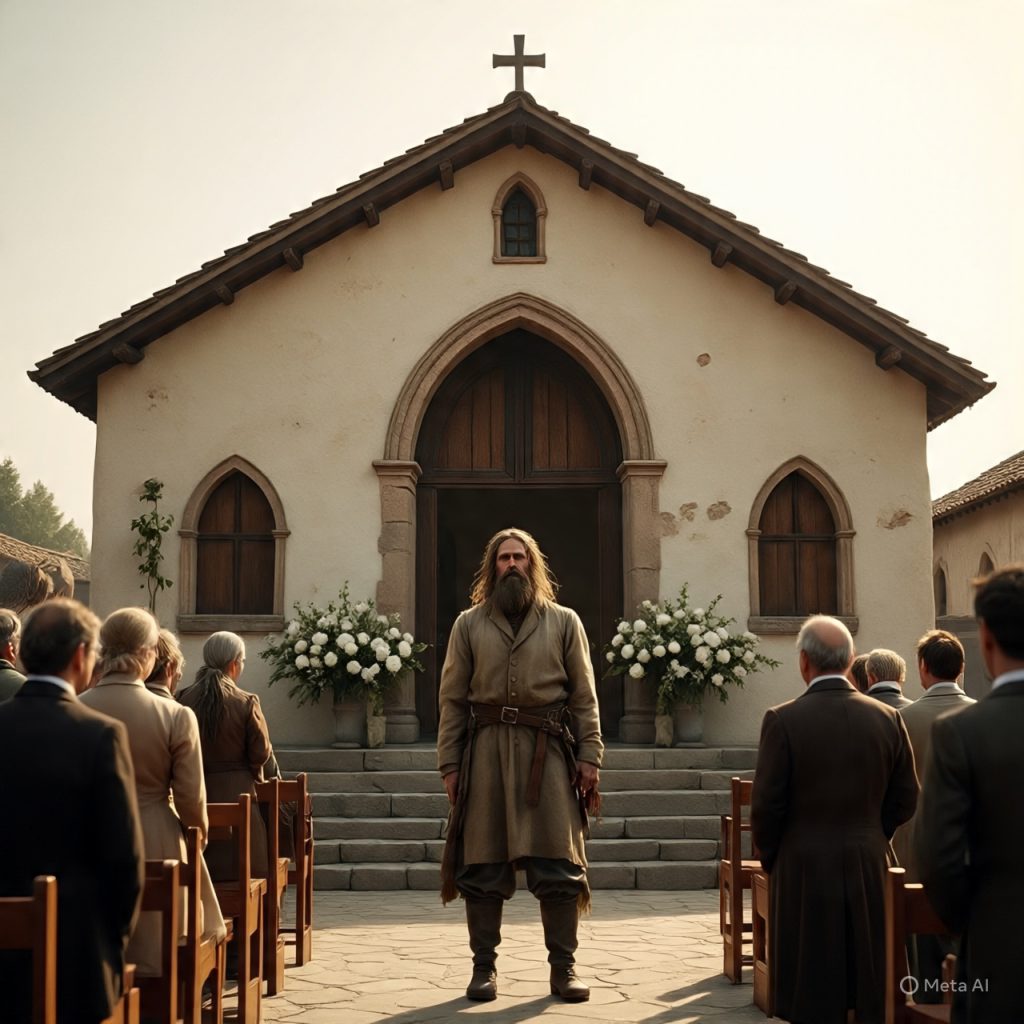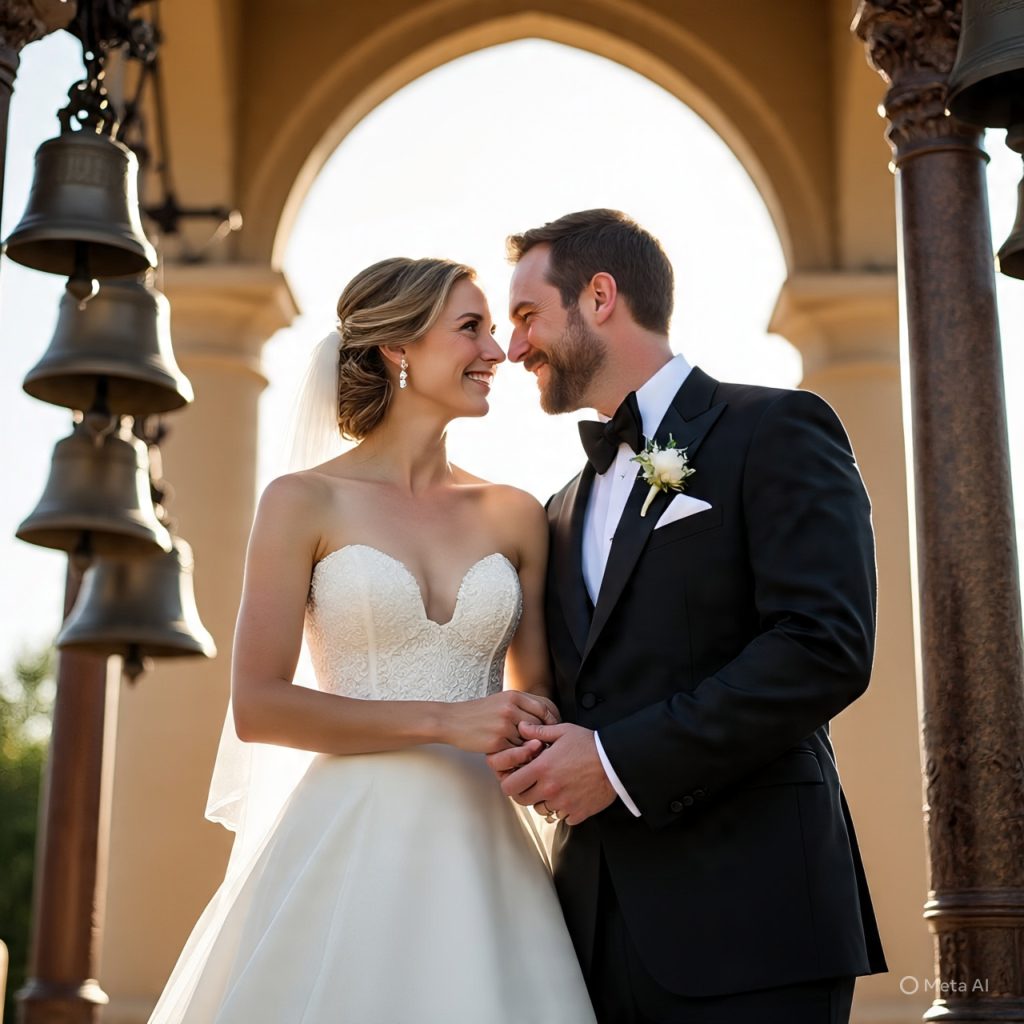
Long ago, in the bustling port town of Charleston, there lived a young girl named Clara. She was the only daughter of Samuel Whitaker, a prosperous trader whose ships sailed to distant lands. Clara grew up surrounded by comfort and affection, for her father adored her more than anything in the world. However, when a sudden fever claimed Samuel’s life, everything changed.
After his death, Clara’s guardianship passed to her stepmother, Marianne. Unlike Samuel, Marianne never warmed to the girl. To her, Clara was a shadow of the past and a reminder of a love she never received. While Clara blossomed into a graceful and intelligent young woman admired by all who met her, Marianne’s jealousy festered like a hidden thorn. Her own daughter, Vivian, though pretty, lacked Clara’s charm and wit, and suitors seemed to pass her by without a second glance.
The admiration Clara received only deepened Marianne’s resentment. The stepmother’s envy soon transformed into a cruel plan—one that would strip Clara of her dignity and, she hoped, her future.
One evening, Marianne called Clara to the parlor, where the candles burned low and her expression was as cold as the marble floor.

“So,” Marianne began, her lips curling in a bitter smile, “you think yourself so special, attracting all those young men, do you? You speak of love and marriage—very well. I have found the perfect husband for you.”
For a brief moment, Clara’s heart fluttered. Could her stepmother truly have found someone kind? But as soon as she heard the name and description of the man, her breath caught in her throat.
“He is a pauper,” Marianne declared with satisfaction. “A man who owns nothing, wears rags, and begs for scraps. The arrangements are complete. You will marry him by week’s end.”
Clara protested, pleaded, even wept—but it was useless. Marianne’s decision was final, and she took a twisted delight in watching Clara’s spirit crumble. Word of the scandalous match spread through Charleston like wildfire. People whispered in markets and parlors: how could the beloved Clara Whitaker, a beauty and a lady, marry a beggar?
The wedding day arrived under a pale sky. The church, draped in white flowers, was crowded with curious townsfolk eager to witness the humiliation. At the altar stood the groom—a tall man with a tangled beard and clothes so worn they barely clung to him. His boots were scuffed, his face shadowed with dirt, and yet his eyes, if anyone had bothered to look closely, held a quiet strength.

Clara walked down the aisle in a simple white dress, her head bowed, feeling as though she were walking into a nightmare she could not escape. The murmurs of the crowd stung like needles.
The priest began to speak, his voice echoing under the high ceiling. But just as he was about to pronounce the vows, the groom suddenly raised his hand.
“Wait,” he said firmly.
A hush swept through the church. All eyes turned toward him.
Slowly, the man removed his tattered coat and let it fall to the ground. Then, with deliberate grace, he wiped the grime from his face and straightened his posture. The transformation was stunning. Beneath the disguise stood a young, striking man with sharp features and a confident smile.
“My name is Nathaniel Brooks,” he announced, his voice clear and strong. “I am not a beggar. I am the son of a wealthy merchant who passed away, leaving me both fortune and a final request. He wished for me to find a woman who would love me not for the gold in my coffers, but for the man I truly am. So I chose to walk the streets in rags, to see the world’s true face.”
The crowd gasped. Whispers rippled through the pews like wind through leaves. Marianne’s complexion drained to a ghastly white.
“When I learned,” Nathaniel continued, “that this lady’s own stepmother sought to humiliate her by marrying her to a beggar, I decided to be that beggar myself. Clara, you have treated me with kindness despite believing I was penniless. Now you know who I am—will you still take my hand?”
Clara’s tears spilled freely, but they were no longer tears of despair. Looking into Nathaniel’s eyes, she felt hope bloom again in her heart.
“Yes,” she said, her voice trembling with joy. “A thousand times, yes.”
The crowd erupted in applause, cheers filling the church like the sound of waves crashing on the shore. Townsfolk who had come to see a scandal now witnessed a miracle of love and courage. Nathaniel took Clara’s hand, and the priest finished the ceremony with a smile.
As the newlyweds stepped into the sunlight, the bells rang, scattering the last traces of gloom. Clara and Nathaniel went on to build a life together filled with laughter, warmth, and endless adventures.

And as for Marianne, she stood frozen in the shadows of the church, unable to speak. Her plan had shattered before her eyes, leaving her bitter and alone. The townspeople never forgot the day when pride and malice were defeated by honesty and love.
In the years that followed, Clara and Nathaniel’s story became a cherished tale in Charleston—one that reminded everyone that true love cannot be tarnished by envy, and that even the darkest schemes can be undone by the light of the heart.